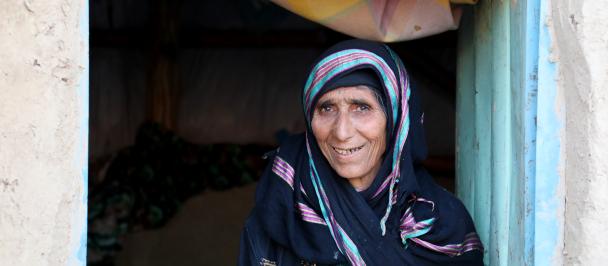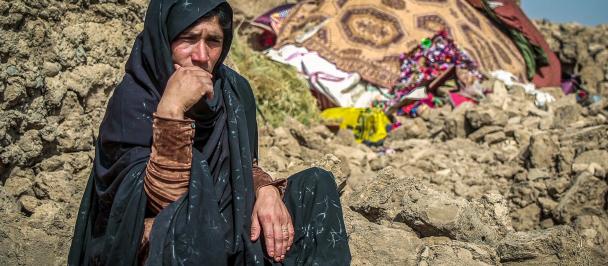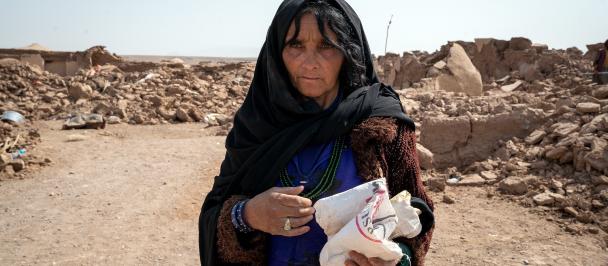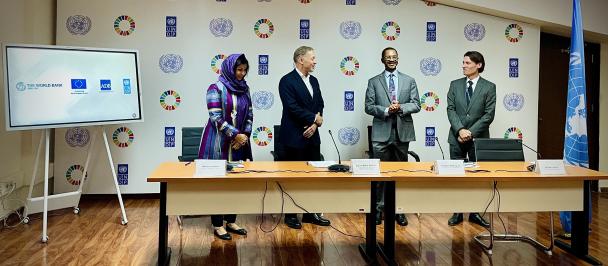UNDP appeals for $25 million to support earthquake recovery in Herat, Afghanistan
October 31, 2023
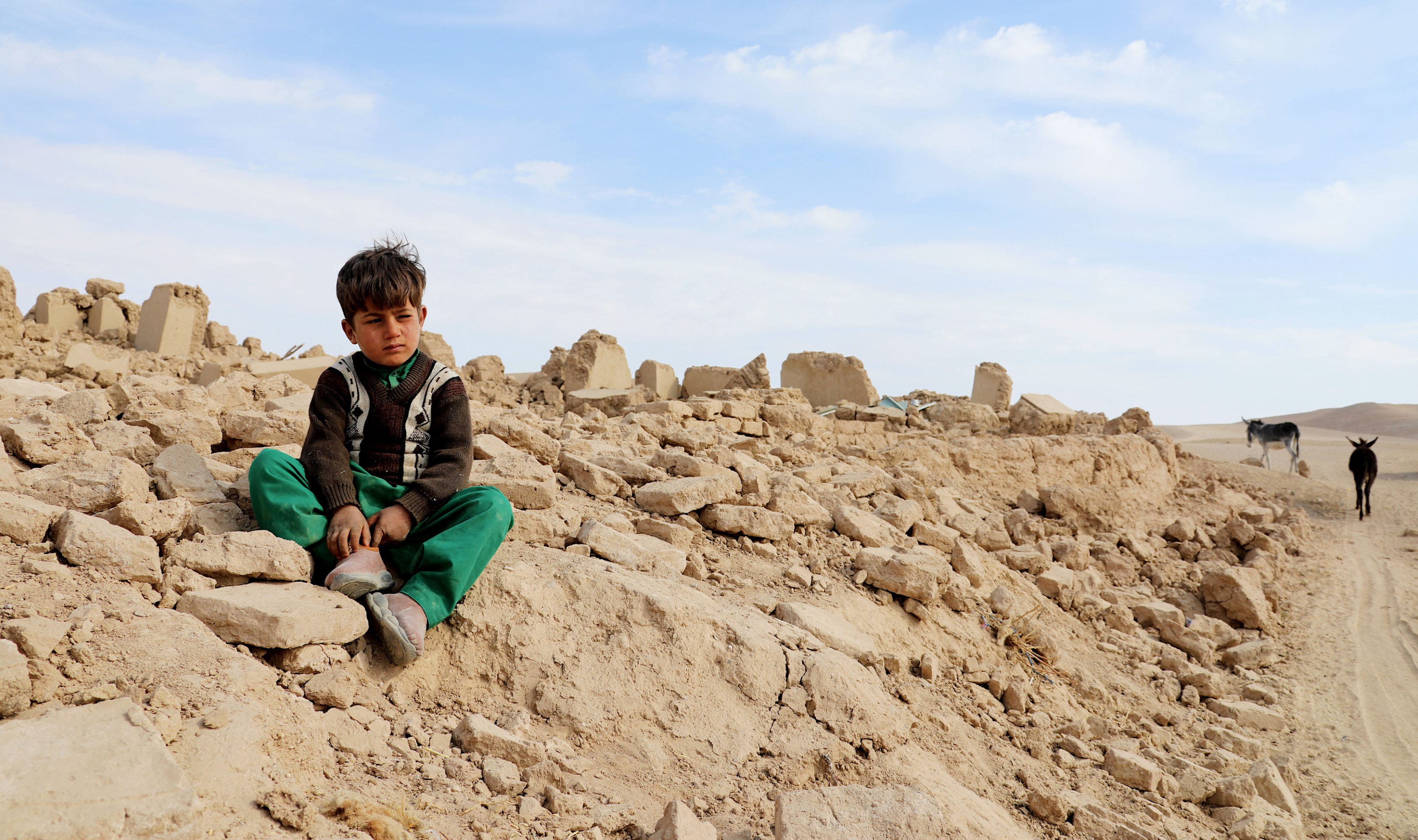
The earthquakes in Herat have not only exposed the immediate need for aid but also highlighted the longstanding challenges faced by Afghanistan.
Kabul, Afghanistan, 31 October 2023 - In the wake of the three devastating earthquakes that struck Herat Province between October 7 and 15, 2023, the UN Development Programme (UNDP) is issuing an urgent appeal for $25 million to support key parts of the recovery plan.
The earthquakes, measuring 6.3 in magnitude, left a trail of destruction affecting 1.6 million people, with over 1,500 deaths, 11,000 injuries, and widespread damage to over 21000 homes and infrastructure - rendering conditions unbearable for communities already grappling with deep poverty and underdevelopment. The survivors, mostly women and children, are mainly living in tents, exposed to the cold, and in need of water, health care, food, and proper shelter.
The UNDP appeal is part of a larger Herat Earthquake Response Plan developed by the UN Humanitarian Country Team, which needs $93.6 million to assist 114,000 people who are most in need during the winter. UNDP, in collaboration with UN partners and NGOs, has already allocated $3.15 million from its own resources for immediate relief and recovery. However, this is not enough to meet the huge demand for recovery and rebuilding.
Stephen Rodriques, UNDP Resident Representative in Afghanistan, said: "The situation on the ground is desperate and winter is fast approaching. Our goal is to help these communities restore basic infrastructure, especially shelter, and return to normalcy as quickly as possible. We've repurposed some of our existing resources so we can start moving quickly, but these resources are just not enough".
UNDP’s appeal for an additional US$25 million will support a comprehensive recovery plan to meet the basic needs of the affected people. The plan aims to provide transitional and permanent shelter (using owner-driven Community Housing approaches), rebuild basic infrastructure, provide renewable energy particularly for households, schools and health facilities; restore and manage water systems and resources, and create temporary (cash-for-work) and longer-term jobs and livelihood opportunities. The overarching goal is to not only rebuild but also create resilient communities by empowering women and creating jobs for those who have lost their sources of income due to the disaster. With winter approaching, the situation is critical and requires urgent action. Specific measures being taken by UNDP to support the earthquake-affected communities include:
- Designing and building transitional shelters: Constructing shelters for households that can withstand future earthquakes, providing comfort and safety for the affected population.
- Debris removal and owner-driven rebuilding: Implementing cash-for-work programmes for debris removal, providing income opportunities for community members. Engineers with expertise in earthquake-prone regions are assessing traditional housing needs, with a focus on empowering women in the process of rebuilding.
- Providing solar cookers: Distributing solar cookers to reduce the need for firewood, mitigating indoor air pollution, and preventing respiratory problems.
- Supporting women-led community kitchens: Enabling women-led community kitchens to cook and serve hot meals for thousands of people daily. Over 6,000 individuals have received warm meals so far.
- Rebuilding infrastructure: Undertaking the reconstruction of essential basic infrastructure such as schools, clinics, irrigation systems, and water systems crucial for the well-being and survival of the affected communities.
- Ongoing Post-Disaster Needs Assessment (PDNA) to assess damages and guide a resilient recovery and reconstruction response plan.
“Amidst many other ongoing crisis globally, Afghanistan finds itself relegated to the periphery of international attention. The country does need assistance. This disaster comes on top of many disasters. Afghanistan has been through four decades of conflict. These quakes hit communities already living in profound poverty, and three out of eight people across the country don't have adequate access to food. Now we have another disaster of enormous magnitude,” said Rodriques.
He emphasized: "we are appealing to the international community not to lose sight of Afghanistan and the needs of its people, and particularly the people in Herat who have just suffered this devastation."
The earthquakes in Herat have not only exposed the immediate need for aid but also highlighted the longstanding challenges faced by Afghanistan—four decades of conflict, high poverty rates, and an ongoing humanitarian crisis.
For media inquiries, please contact:
- Afghanistan: S. Omer Sadaat: +90 534 0881996 / sayed.omer@undp.org or partnerships.communications@undp.org
- New York: Victor Garrido Delgado: +1-917-995-1687 / victor.garrido.delgado@undp.org
- Geneva: Sarah Bel + 41 799341117 / sarah.bel@undp.org
More Photos:

 Locations
Locations



